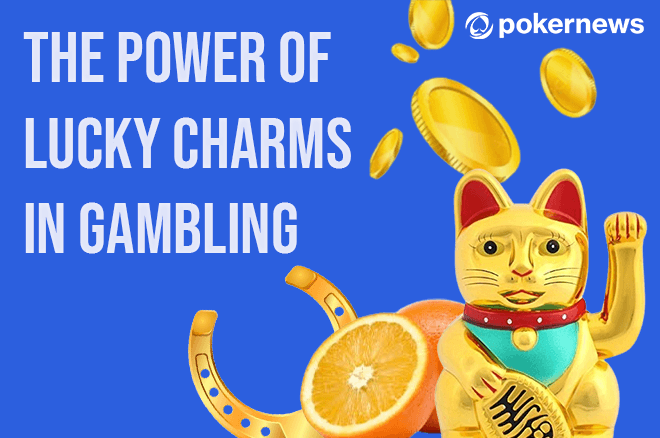From rabbit’s feet to lucky socks, players around the world swear by their chosen talismans, believing they hold the key to unlocking fortunes. But what role do these lucky charms truly play in the unpredictable world of gambling?
While skeptics may dismiss them as mere trinkets, the emotional reassurance provided by lucky charms can often be as valuable as any tangible advantage in the unpredictable world of gambling. We delve into the phenomenon of lucky charms and their influence on gambling outcomes.
The Psychology and Research Behind Lucky Charms
Psychologists suggest that the belief in lucky charms stems from the human tendency to seek patterns and control in uncertain situations. Individuals perhaps feel they gain a sense of control over outcomes largely determined by chance by attributing success or failure to an object. This psychological phenomenon, known as magical thinking, can provide comfort and confidence, which may boost performance in high-stakes environments such as when playing poker and table games.
While anecdotal evidence abounds, scientific research on the efficacy of lucky charms in gambling remains scarce. Studies investigating the impact of superstitions on decision-making have yielded mixed results, with some indicating a placebo effect while others find no significant correlation. Despite the lack of empirical evidence, the prevalence of lucky charms persists in gambling culture, highlighting the power of belief in shaping behavior.
Famous Gambling Charms
Across different cultures an array of objects are believed to bring luck to gamblers. Some swear by traditional symbols like four-leaf clovers or horseshoes, while others rely on more personal items such as family heirlooms or photographs. Casino regulars might be spotted wearing a certain shirt or carrying a particular coin, convinced it holds the power to sway luck in their favor.
Below are some tried and tested favorites that are loved by players across the globe:
- Rabbit Foot:
The association of rabbits with luck dates back to ancient Celtic cultures. In these cultures, rabbits were associated with various deities and believed to possess magical powers. The belief in the rabbit’s foot as a talisman for luck emerged from these ancient beliefs. Additionally, some Native American tribes believed rabbits were lucky animals, and carrying a rabbit’s foot was believed to bring good fortune and protection from harm. - Horseshoe: The theory behind the horseshoe’s luck stems from its shape. Traditionally, horseshoes are shaped like a “U” with the open end facing upward. This shape is reminiscent of a cup or vessel, symbolizing the capturing and holding of good fortune. In gambling, where luck plays a significant role, people may see the horseshoe as a vessel for attracting and retaining luck.
- Lucky Cat: The association of cats with luck in gambling is a relatively modern superstition, influenced by various cultural depictions and beliefs. In some Asian cultures, particularly in Japan, the beckoning cat or “maneki-neko” is a popular talisman believed to bring good luck and prosperity. The maneki-neko is often depicted with one paw raised in a beckoning gesture, inviting good fortune and success. This cultural association of cats with luck may have also contributed to the belief in cats as lucky symbols in gambling.
Lucky Dice:
Dice are considered lucky in gambling due to their inherent randomness and symbolism of risk-taking. As tools of chance, dice embody the unpredictable nature of luck, where each roll presents an opportunity for a favorable outcome. Superstitions surrounding dice, such as beliefs in lucky numbers or rituals before rolling (such as blowing on the dice before rolling), also contribute to their status as lucky objects in gambling. Ultimately, the combination of randomness, historical use, symbolism, and superstition intertwine to make dice symbols of good fortune in the world of gambling.Fun Fact: Crossing your fingers for good fortune used to be a two-person job. People would cross their index finger over someone else’s while they made a wish to show their support.
- Lucky Coin / Chips: For some, carrying a particular coin or using a specific chip may serve as a talisman, providing a sense of confidence or reassurance during gameplay. The belief in luck is deeply ingrained in gambling culture, and individuals often seek out symbols or rituals to bring them good fortune. Furthermore, lucky coins or chips may have sentimental value, such as being a gift from a loved one or associated with a memorable winning streak. The psychological comfort derived from these items can positively influence a player’s mindset and potentially impact their performance at the table.
- Oranges: Oranges are considered lucky in gambling due to cultural associations with wealth and prosperity, as well as the resemblance of their round shape to the number 8, which is considered lucky in some cultures. Additionally, historical traditions, such as giving oranges as gifts for good luck in Chinese culture, have further solidified their symbolic significance in gambling contexts.
- Alligator Teeth: Alligator teeth are considered lucky in some cultures due to their association with strength, protection, and resilience. Alligators are apex predators known for their formidable jaws and survival skills, symbolizing power and safety. Carrying or wearing alligator teeth as talismans or charms is believed to bring luck and ward off negative energies or dangers.
- Photos: Family photos are considered lucky in gambling because they evoke feelings of love, connection, and support, which can positively influence a person’s mindset and confidence. Additionally, some believe that the presence of family photos brings good fortune by attracting positive energy or guardian spirits to watch over the player. Ultimately, the belief in the luckiness of family photos in gambling is rooted in the idea that emotional well-being and positive energy can enhance one’s chances of success.
Do Casinos Ban Lucky Charms?

Currently, no evidence supports the efficacy of believing in lucky charms. Individuals who rely on them during games or competitions do so primarily for a psychological boost. Feeling confident or believing in an advantage over opponents doesn’t necessarily translate into actual superiority or influence the game’s outcome.
In the world of gambling, the allure of lucky charms persists as a fascinating aspect of human behavior. While their impact on actual outcomes remains debatable, the psychological comfort they provide cannot be overlooked. Whether clutching a rabbit’s foot or rubbing a lucky coin, players continue to find solace in their chosen talismans, perpetuating the mystique of luck in the game of chance.
Disclaimer: any promotions presented on this page were correct and available at the time of writing. Promotions can change regularly. We encourage all users to check the promotion displayed matches the most current promotion available by clicking through to the operator welcome page. Please read the terms and conditions carefully before you accept any promotional welcome offer.
